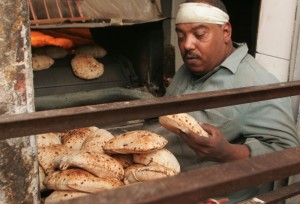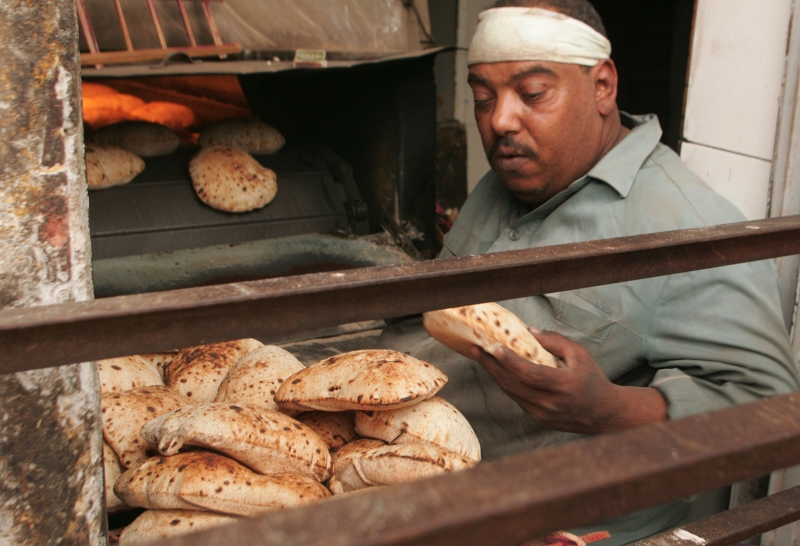
(AFP Photo)
By Nada Badawi
The Egyptian government announced a decision to cut wheat imports this year by around 10%, relying on what it has called “a large domestic wheat harvest” in the upcoming six weeks.
The Egyptian government has predicted it will harvest around 9.5m tonnes of wheat this year.
Egypt usually imports about 10m tonnes annually, but this year the government stated that it will purchase only 4-5m tonnes to save hard currency.
Egypt, the world’s largest wheat importer, is facing a currency crisis impeding its ability to import wheat, which is threatening the government’s supply of subsidised bread.
Minister of Supply and Internal Trade Bassem Ouda stated that there were around 2.31m tonnes of wheat and corn, which should be sufficient to cover until the end of June.
Egyptian farmers criticised the decision while raising concerns over the lack of machines, fuel, fertilisers and water.
Head of the Farmers Syndicate Mohamed Abdel Qader said that the decision to cut wheat imports is “crazy”.
“Is the government really publically announcing such a thing when the poor farmers lack proper machinery and equipment? Did they not hear about the fuel crisis?” said Abdel Qader.
Abdel Qader complained that the Ministry of Finance has not allocated enough money to collect wheat.
“The Minister of Agriculture and Land Reclamation has never attempted to sit and talk with the farmers,” he said. “We have never seen him in our meetings, who did he sit with from our group?”
Farmer Farid Abdel Malek told Reuters: “The Egyptian government must be dreaming if it expects a bumper wheat harvest over the next six weeks that will save the country billions of dollars in imports.”
Concerns by farmers increase as the summer approaches in the midst of a diesel fuel shortage, amid worries that diesel to power pumps and trucks and transport crops will be in short supply.
“The performance of the Ministry of Agriculture has really weakened because of the wheat problem, there’s no transparency,” said Abdel Qader.
The Farmers’ Syndicate has demanded the government to form a national council for agriculture to better address their problems, but “to no avail” according to Qader.
In February, President of the Foods Division Abdel Ghaffar El-Salamony said that the wheat purchased in January should last until 30 June.



